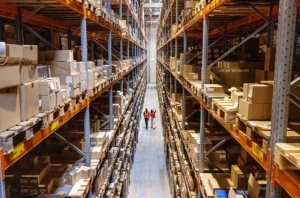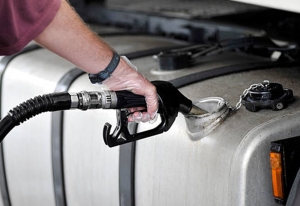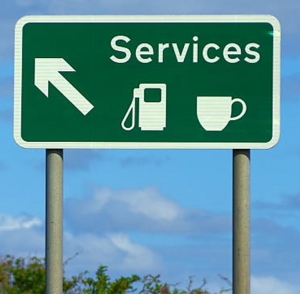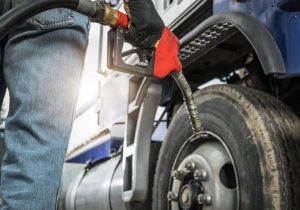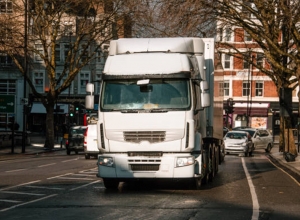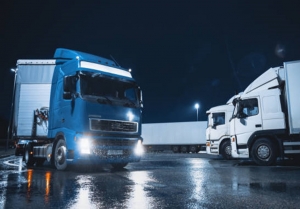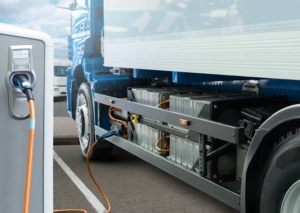Test Owner
Logistics Insolvencies Surge 14% Amid Falling Demand and Rising Costs
Insolvencies among logistics companies have risen by 14% in the past year, increasing from 464 in 2022/23 to 530 in 2023/24, according to research by Forvis Mazars. Many of these businesses were established during the pandemic to meet the surge in demand for home deliveries. However, as demand has fallen back to pre-pandemic levels, many smaller operators are now struggling to remain viable.
During the pandemic, online sales accounted for 34% of all retail sales in May 2020 but have since dropped to 28% by July 2024. This decline, coupled with the resurgence of high street shopping, has reduced the need for logistics services, which are closely linked to e-commerce growth. Some online retailers have also introduced fees for returning goods, prompting consumers to cut back on bulk ordering and returns, further dampening delivery volumes.
Consumer spending has declined since the pandemic, partly due to high interest rates reducing disposable income. Retail sales volume indices have dropped from 105 in July 2020 to 99 in July 2024. Rising costs, including wage inflation and vehicle leasing expenses, are adding to the challenges faced by logistics companies, particularly smaller operators.
Rebecca Dacre, Partner at Forvis Mazars, noted that smaller logistics firms are finding it increasingly hard to compete with larger players. She highlighted that falling demand, economic pressures, and the need for significant investment in electric vehicles are creating a challenging environment for many in the sector. With these factors at play, the future remains uncertain for smaller logistics businesses.
Hauliers Demand Government Action as Fuel Prices Threaten Survival
Hauliers are calling on the Government to intervene as record diesel prices threaten to erode their profits completely. The average cost of diesel has soared to £1.56 per litre, driven by surging oil prices following Russia's invasion of Ukraine, leaving many in the logistics sector struggling to stay afloat.
The Road Haulage Association (RHA) has urged ministers to delay changes to the use of untaxed red diesel by a year to ease the pressure on the industry. It is also calling for a two-year freeze on fuel duty and more flexibility with the Apprenticeship Levy to help tackle driver shortages. The association argues these measures are essential to prevent further damage to the sector.
Rod McKenzie, RHA’s executive director for policy and public affairs, highlighted the dire situation, noting that the haulage industry operates on thin margins, with average annual profits of just 3%. He explained that rising fuel costs, amounting to an additional £77 to £87 per week per truck, are effectively erasing these slim profits. “This leaves many businesses on the brink, with no choice but to pass on costs, adding to inflationary pressures for everyone,” he said.
McKenzie warned that without government action, some hauliers may not survive, exacerbating inflation and increasing costs for UK consumers. He urged the Government to act swiftly to support the industry and mitigate wider economic impacts.
UK's Growing Pothole Crisis Spurs £500M Road Repair Boost
The UK’s pothole problem is worsening, with damaged roads causing significant issues for drivers, cyclists, and communities across the country. Recent figures reveal that potholes have contributed to over half a million vehicle breakdowns in 2024 alone. Estimates suggest there are now over 1.3 million potholes on UK roads, equating to roughly six potholes per mile of local road. This widespread damage leads to high repair costs for motorists and poses serious safety risks, highlighting the urgent need for sustainable solutions.
In response, the Chancellor has pledged an additional £500 million for road maintenance in 2025, aiming to repair an extra one million potholes annually. While the investment is a welcome boost for local councils and communities dealing with deteriorating road conditions, industry experts estimate that fully addressing the problem would require a substantial £16.3 billion over the next decade. This funding increase, though helpful, offers only temporary relief to a deeply rooted issue requiring a long-term investment strategy.
Potholes form when the top layer of road material breaks down, often due to traffic pressure, weathering, and moisture. Heavy vehicles such as trucks and buses contribute to this deterioration, which is why UK roads, bearing immense traffic loads, are particularly vulnerable to potholes. These defects range in size and depth, posing risks not only to vehicles but also to pedestrians and cyclists.
Despite ongoing repair efforts, the frequency of pothole reappearance underscores broader infrastructure challenges in the UK. The rising number of potholes is a sign of underinvestment in road maintenance, and while recent funding is a step forward, the problem remains widespread. For now, motorists, cyclists, and pedestrians are urged to remain vigilant for these hazards on the roads.
Welcome Break Enhances HGV Parks with Major Investment in Driver Facilities
Motorway service provider Welcome Break has announced a substantial investment aimed at enhancing facilities across its HGV parks nationwide. A combined £1.7 million from Welcome Break and matched funding from National Highways is being utilised to upgrade facilities at various UK sites, providing modern amenities and improved security measures.
The improvements include new shower blocks, 3-metre-high palisade security fencing, LED floodlighting for better visibility, and advanced PTZ and Infrared Bi-Optic CCTV systems with remote monitoring capabilities. Additionally, outdoor gyms are planned for five locations, set to open in early 2025, giving HGV drivers the chance to stay active during breaks. This initiative, supported by National Highways, reflects a commitment to promoting drivers' health and wellbeing.
Nick Jackson, Head of Commercial Income at Welcome Break, expressed gratitude for the National Highways funding, noting that the upgrades have created safer and more comfortable environments for HGV drivers. He highlighted that the enhancements in amenities, security, and the addition of outdoor gyms have positively impacted driver satisfaction and wellbeing.
This collaboration between Welcome Break and National Highways stems from the government's Designated Funds Project, introduced in 2022. The project allocated £20 million in matched funding to improve infrastructure and support the HGV sector, marking an important step in enhancing the daily experience and safety for HGV drivers across the UK.
Police Warn HGV Drivers of Rising Fuel Thefts
Suffolk Police are renewing their appeal to lorry drivers and haulage companies to stay vigilant as thieves increasingly target heavy goods vehicles (HGVs) for fuel theft. A recent string of thefts along the A14 and A12 has seen diesel siphoned from parked HGVs in laybys and lorry parks overnight, leaving damage to fuel caps and tanks. Authorities believe the true number of incidents may be higher than reported, with some cases going unrecorded.
Since 17 October, four confirmed incidents have occurred in locations including Haughley, Creeting St Peter, Creeting St Mary, and Kentford’s Herringswell Road. Police urge all drivers to report any thefts, as well as suspicious activity around parked HGVs, to help gather crucial evidence. Superintendent Matthew Carney advised, "If you notice any unusual activity near vehicles at night, reporting it immediately via 999 can significantly improve our chances of catching those involved."
The force highlights that HGVs are often prime targets due to their large fuel tanks and the fact that thefts often take place while drivers are resting. Fuel theft not only incurs financial losses but also causes costly damage to vehicle parts like fuel caps, tanks, and fuel lines.
Secured By Design, a police initiative for crime prevention, advises on measures to help deter theft, including installing alert devices that notify drivers if fuel or vehicle parts are being tampered with.
New Safety Standards for HGVs in London Enforced to Boost Road Safety
On 28th October 2024, new, stricter safety standards for heavy goods vehicles (HGVs) entered into force in London, as Transport for London (TfL) updated its Direct Vision Standard (DVS) regulations. Now, all HGVs over 12 tonnes operating within Greater London must have a minimum three-star DVS rating or be fitted with an enhanced safety system known as the Progressive Safe System (PSS). Vehicles that do not meet these updated standards or lack a valid HGV safety permit are now subject to penalties of up to £550.
The DVS and HGV Safety Permit Scheme form an essential part of the Mayor of London’s Vision Zero strategy to eliminate all deaths and serious injuries on London’s roads. By enhancing direct visibility for drivers and utilising advanced safety technology, the updated scheme aims to prevent the most common types of fatal collisions involving pedestrians and cyclists, especially when HGVs move off or turn.
Since its initial rollout, TfL’s DVS measures have shown notable success, with a 62% reduction in fatal collisions involving HGVs since the 2017-2019 baseline. However, serious incidents continue, with six fatalities and 32 serious injuries recorded in 2023, underscoring the need for these updated measures to make further progress toward Vision Zero.
TfL worked closely with the freight industry and vehicle manufacturers to develop the PSS and provided a six-month grace period for operators to install and test new safety equipment. The PSS now includes the latest technologies to boost visibility and support safer operations on London’s roads, marking a significant step toward a safer capital.
How to Navigate City Driving
City driving, even for the most seasoned driver, presents unique challenges. The complexity of roads, junctions, heavy traffic, and a high number of vulnerable road users create a demanding environment. On top of that, the constant flow of information and ever-changing road conditions add to the risks. It's no surprise that urban accident rates are higher than in rural areas.
To help keep you and others safe on city roads, here are some key tips. By keeping these in mind, you'll be better prepared to handle the specific hazards of urban driving and protect both yourself and other road users.
Common City Hazards
Understanding the typical hazards in urban areas will help you stay alert and prepared. These include
- Vulnerable road users
- Traffic congestion
- Noise and air pollution
- Time and road restrictions
- Confusing layouts and signage
- Narrow streets and dead ends, limiting manoeuvrability
When driving in the city, consider the following
- Do you know your delivery location? Is there a safe loading/unloading area?
- Are you aware of vulnerable road users?
- Have you checked for any roadworks or closures that might affect your journey?
Who Are Vulnerable Road Users?
Vulnerable road users are more common in cities, and being aware of them is crucial for reducing the risk of accidents and ensuring safety.
- Pedestrians: They can be distracted by phones or headphones. Elderly pedestrians may take longer to cross, while younger ones might step out without looking
- Cyclists: Many commute by bike in cities, and they can be hard to spot, especially at junctions and roundabouts
- Motorcyclists: They often weave through traffic during congestion and can be difficult to see when pulling out at junctions
Staying alert and aware of these hazards will help ensure a safer driving experience in the city.
Disclaimer
This information has been gathered from sources including GOV.UK and RoSPA. Although every effort has been made to ensure accuracy, Quicktemp and its affiliates accept no liability for any errors or omissions.
HGV Industry Faces Driver Shortage as Recruits Struggle with Unsociable Hours
A transport manager has highlighted the ongoing “chronic driver shortage” in the HGV industry, as new recruits are deterred by the unsociable hours. Chris Kirk, from Maritime Transport’s Felixstowe depot, spoke at a driver recruitment event in Suffolk, explaining that many potential drivers are put off when they realise they might not always get home for meals.
The event, funded by Suffolk and Norfolk County councils, aimed to encourage more people to consider a career as an HGV driver. The sector is currently facing a shortfall of around 40,000 drivers, according to the HGV Training Network. Kirk pointed out that balancing home life and work can be a challenge but emphasised that there are ways to manage expectations and support new drivers from the start. He stressed that improving recruitment could solve operational challenges in the industry.
Despite the challenges, some, like Theresa, a former healthcare assistant in her 50s, are embracing the opportunity. “I just love driving,” she said, as she trains to become an HGV driver. Although she admits reversing has been tricky, she’s enjoying the freedom that comes with the job. She sees the role as a new adventure and a fresh start.
With many HGV drivers approaching retirement age, the industry needs fresh recruits. James Clifford, CEO of HGVC, stressed the importance of attracting new talent, stating that while the worst of the recent crisis is over, the UK still desperately needs more drivers to meet demand and avoid future shortages.
Fuel Duty Set to Rise as Campaigners Call for Fairer Transport Costs
Fuel duty is expected to rise by up to 7p per litre following the budget, as speculation grows that the chancellor will reintroduce inflationary increases and end the temporary cut. Environmental and transport campaigners are urging the chancellor, Rachel Reeves to align motoring costs with other forms of transport after years of fuel duty freezes, while rail fares have soared.
Treasury officials have reportedly advised Reeves to act now, with petrol prices lower than when the 5p duty cut was introduced in 2022. Motoring groups, however, argue that increasing fuel duty would disproportionately impact struggling drivers. The current duty stands at 52.95p per litre, generating around £25bn annually.
Campaigners like the Campaign for Better Transport believe reinstating inflationary rises could raise an additional £4.2bn, helping to reduce transport emissions, which account for nearly 30% of the UK’s greenhouse gases. They argue that public transport should be more affordable compared to driving, which has become cheaper due to fuel duty freezes.
Meanwhile, research shows wealthier households benefit more from lower fuel duty, as they own more vehicles. As electric vehicle use grows, there are calls for Reeves to consider a pay-per-mile tax as a fairer way to tax road users, but such proposals have historically been unpopular. The Treasury has declined to comment on any potential tax changes.
First Electric HGV in the UK Joins Welch’s Transport
The first electric heavy goods vehicle (eHGV) from the eFreight 2030 consortium has been delivered to Welch’s Transport in Cambridgeshire. The 42-tonne Renault Truck will operate from the company’s Duxford site, handling regional distribution and long-haul deliveries. This marks the first use of Renault Trucks' heavy-duty electric model in UK operations.
Welch’s Transport and Renault Trucks are among the 14 founding members of eFreight 2030, part of the Government’s Zero Emission HGV and Infrastructure Demonstrator (ZEHID) programme. The initiative aims to introduce 100 eHGVs and 32 new charging locations, helping shape the future of zero-emission transport in the UK.
Chris Welch, managing director of Welch’s Transport, highlighted the company's commitment to sustainability, noting that the addition of the electric HGV is a significant milestone in decarbonising road freight. The company has already invested in electric vehicles, including a 19-tonne e-truck for Cambridge's Net Zero delivery service and a 150kW supercharger at its Duxford site.
Michael Boxwell, Group CEO of Voltempo, which leads the eFreight 2030 consortium, expressed enthusiasm for the project, stating that real-world insights from eHGV operations will demonstrate how electric vehicles can replace conventional HGVs at scale.


